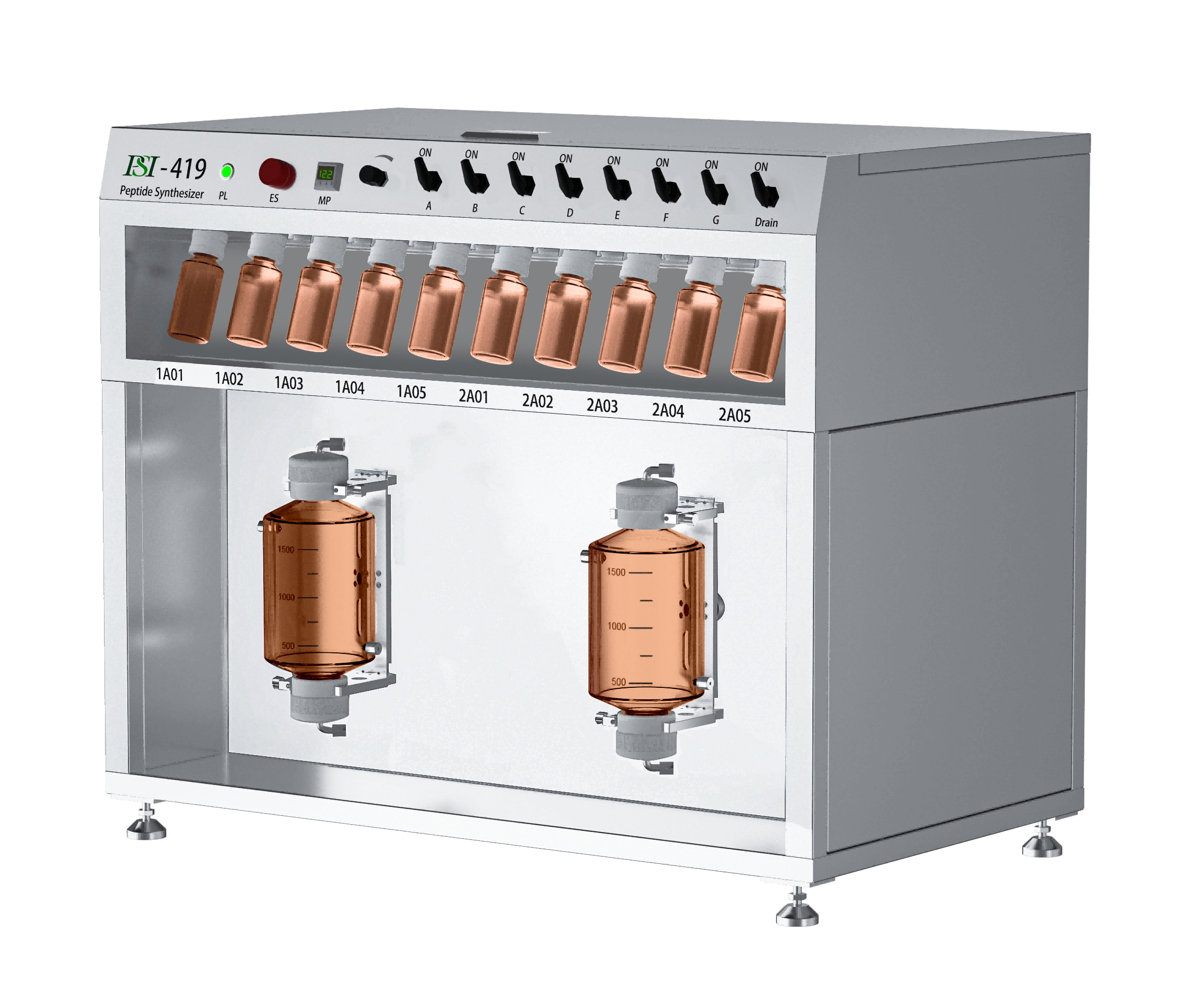Discussion on the Future Development Ideas of Peptide Synthesizers
Release Time:2024-01-22
Number of views:903
A peptide synthesizer is an instrument used for synthesizing peptides, whose main function is to connect amino acids in a specific sequence to form peptide molecules with certain biological functions. Widely used in biomedical, drug development, genetic engineering and other fields, it has important scientific significance and economic value.
Specifically, the peptide synthesizer can achieve the following functions:
1. Synthesize peptides with specific sequences: By setting different amino acid sequences, the synthesizer can accurately synthesize peptide molecules with specific biological functions.
2. Improve peptide purity: The synthesizer uses technologies such as high-performance liquid chromatography to effectively remove by-products and impurities generated during the synthesis process, thereby improving the purity of peptides.
3. Automated operation: The synthesizer can achieve automated operation, greatly improving the efficiency and accuracy of peptide synthesis.
4. Reduce production costs: Compared to traditional peptide synthesis methods, the synthesizer can greatly reduce production costs and improve production efficiency.
Discussion on the future development ideas of peptide synthesizers:
Firstly, simplifying the operational process is an important direction for the future development of synthesizers. At present, the peptide synthesis process requires multiple steps, including solid-phase synthesis, cutting, purification, etc. The operation process is cumbersome and time-consuming, which not only increases the difficulty of the experiment, but also limits the speed and efficiency of peptide synthesis. Therefore, future synthesizers should develop towards simplifying operational processes, such as integrating multiple steps into one device through integrated design, thereby greatly improving the efficiency of peptide synthesis.
Secondly, improving the accuracy and quality of synthesis is the key to the future development of synthesizers. The quality of peptides directly affects their application effectiveness in scientific research and medical fields. Therefore, future peptide synthesizers should have higher accuracy and quality control capabilities, such as by introducing advanced sensors and control systems to monitor and adjust various parameters during the synthesis process in real time, to ensure the quality and stability of peptides.
In addition, expanding the application field is also an important task for the future development of synthesizers. At present, synthesizers are mainly used in fields such as biological science and medical research. However, with the progress of technology and the development of society, the application potential of peptides in other fields is increasingly evident, such as environmental protection, energy, agriculture, and so on. Therefore, future synthesizers should have a wider range of application capabilities to meet the needs of different fields.
Finally, achieving intelligence and automation is an important trend for the future development of synthesizers. With the development of artificial intelligence and machine learning technology, synthesizers can automatically adjust various parameters during the synthesis process through learning and optimizing algorithms, thereby improving the efficiency and accuracy of synthesis. At the same time, by combining with cloud computing and big data technology, remote storage and analysis of peptide synthesis data can be achieved, providing more convenient services for scientific researchers.





